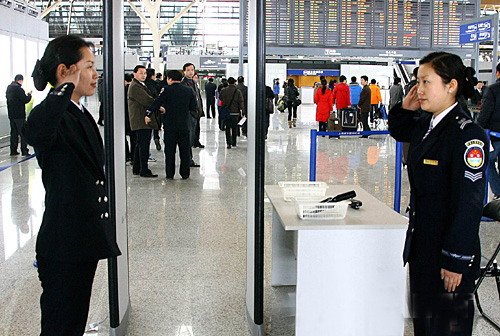Airlines restrict 'risky' batteries
 0 Comment(s)
0 Comment(s) Print
Print E-mail
Shanghai Daily, July 29, 2011
E-mail
Shanghai Daily, July 29, 2011
Air passengers carrying electronic devices powered by lithium batteries must now seek airline approval before flying as the batteries could pose a safety risk.
 |
|
Airlines restrict 'risky' batteries |
They can take lithium batteries only in carry-on luggage but their lithium content can't exceed 2 grams or their energy 100 watt-hours.
The Civil Aviation Administration of China has tightened checks on lithium batteries after a video camera battery caught fire on an Air China plane from Beijing to Shanghai in May.
"Digital devices, such as iPads, must be carried in carry-on luggage rather than check-in luggage, which will make it easier for crew to spot problems," said Zhang Wu'an, a spokesman for Shanghai-based Spring Airlines.
Generally, lithium batteries in cell phones, cameras, portable video cameras and laptops comply with the standard, but passengers carrying multiple batteries should insulate electrodes using tape or isolate batteries in separate plastic bags.
Carrying lithium batteries with an energy rating of between 100wh and 160wh must be approved by airlines and passengers can take no more than two such batteries in carry-on luggage.
The administration called for stricter checks on film equipment, medical devices, toys and power tools as the energy of lithium batteries in such devices were likely to exceed 100wh.
Lithium batteries with an energy rating higher than 160wh are banned.
The energy rating for lithium batteries in laptops is between 30wh and 90wh.
Lithium is an unstable metal that can spontaneously combust when overheated at high altitude, especially in narrow cargo cabins.
A 130wh battery in a Sony video camera, carried by an employee of a United States broadcasting company, caught fire on an Air China plane from Beijing to Shanghai on May 25. The air crew used three fire extinguishers to douse the blaze.





